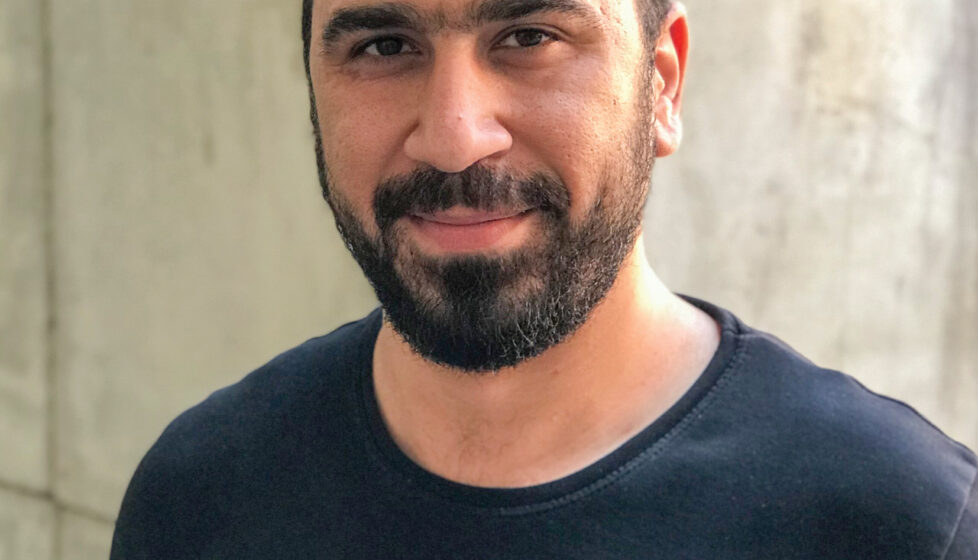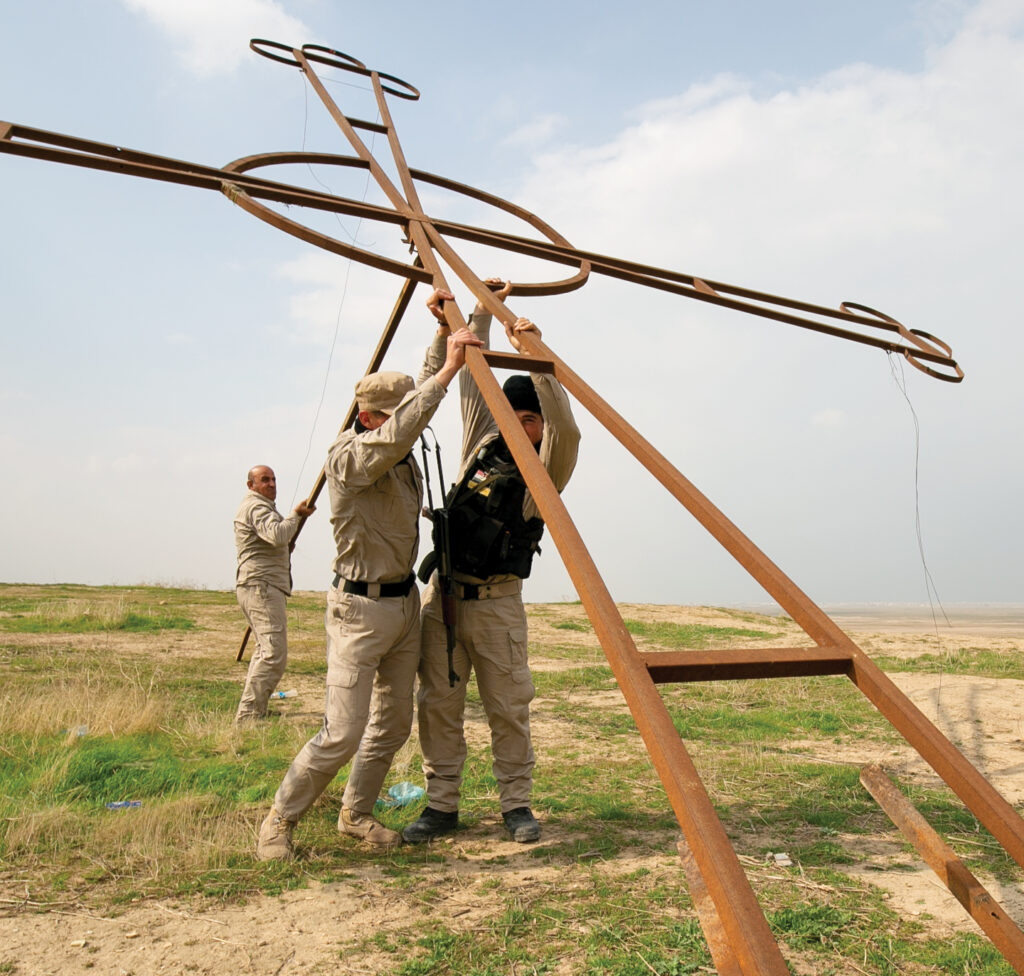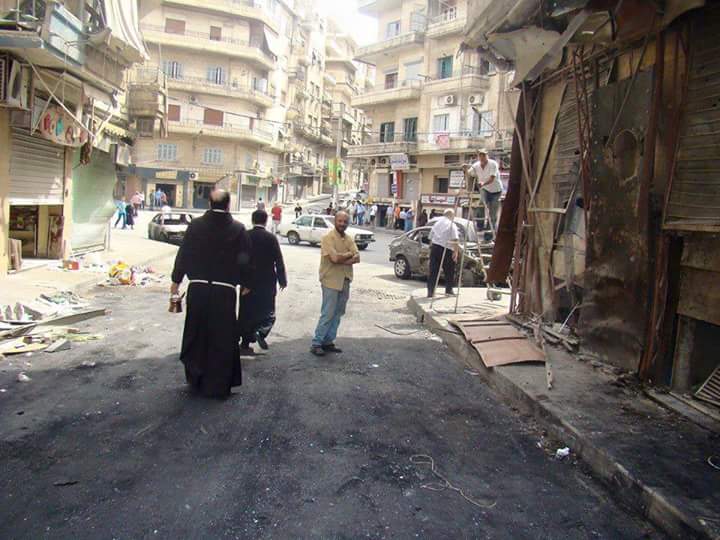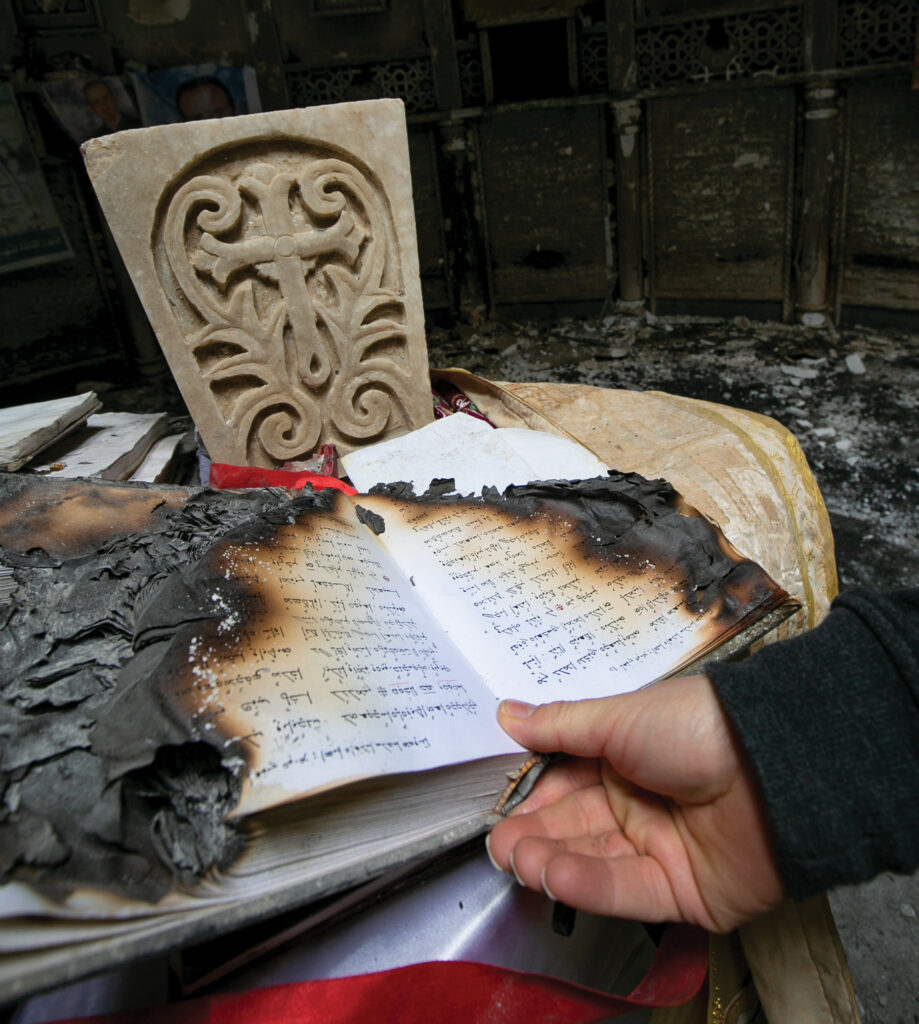ISIS Kidnaps Son of Syrian Christians
Syria

Abdu Oganesyan and his father were determined to keep their workshop open, despite the civil war that was destroying their Syrian homeland. Abdu’s mother, sister and two younger brothers had moved to a larger city for safety when the war broke out in 2011, but he and his father had stayed behind to continue managing the shop. They were also concerned about protecting the land that had been in their family since 1920, when their ancestors had fled the Armenian genocide in Turkey and immigrated to Syria.

When clashes between the Free Syrian Army, al-Nusra Front, Islamic Front and self-proclaimed Islamic State (ISIS) would erupt in their neighborhood, Abdu and his father would hunker down and try to avoid getting caught in the crossfire. Still, they fully expected to keep the shop open until the fighting was over.
On June 1, 2014, however, their plans for the future were shattered when members of the Islamic Front, composed of foreigners from Iraq and Turkey, surrounded Abdu and a Muslim employee on the street in front of their shop.
Kidnapped by Muslim Extremists
The Islamists allowed the Muslim employee to leave, but they slid a black bag over Abdu’s head, held a gun to his temple and forced him into their vehicle. After a short drive, they dragged him into a cell, where they bound his hands and legs behind his back and sedated him until he passed out. “I woke up in pain and started screaming,” Abdu recalled.
When one of the group’s leaders asked Abdu what tribe he was from, another militia member answered for him. “He’s not from any tribe — he’s a Nasara [Christian],” the man said. Enraged, the leader began screaming that they should have killed him immediately.

The following days were the most terrifying of Abdu’s life. The Islamists hit his toes with a stick, cursing him and his parents. They made him face a wall while they kicked him repeatedly, calling him a “Nasara pig.” They shackled him with chains and kept him in a cell filled with mice and scorpions. They ran knives over his legs, hands and neck, threatening to slaughter him, and every time he drank the water they gave him, he fell unconscious. They also asked him about other Christian families and which of them had money.
On the sixth day of his captivity, Abdu’s kidnappers made him call his family while they beat him to make him scream. They demanded the equivalent of $270,000 from his family, who had no way of paying the ransom.
Though Abdu’s family was from a Christian background, they had never attended church. But since moving to the larger city, his sister had begun attending an evangelical church and had come to faith in Christ. When the Islamists called with their ransom demand, she recited part of Psalm 23 and encouraged Abdu to remain hopeful because she and the church were praying for him.
“I was not yet a genuine believer at that stage,” Abdu said. And yet, throughout his ordeal with the Islamic Front, he found himself repeating a prayer that he says he did not understand at the time: “Lord, take me out of here and I will become your servant,” he prayed.
On the evening of his 10th day in captivity, Abdu was approached by a guard who gave him the news he had most feared. “It is over,” the man told him. “They will execute you.”
One of the Islamists removed Abdu’s blindfold, and for the first time he saw the faces of his captors, with their heads and necks wrapped in scarves. They then loaded him onto a truck and drove to a creek, where they again blindfolded him and ordered him to kneel in the sand; he prayed they would execute him with bullets rather than knives.
Abdu began counting to 50, as they had demanded, expecting the sound of gunfire at any second. But when he got to 10, instead of gunshots, he heard the surprising sound of their truck driving away. In disbelief, he waited cautiously before lifting the blindfold. When he did, he saw that he was alone … and he was free!
Finding Jesus
Within a month, ISIS had taken control of the region from Raqqa, Syria, to Mosul, Iraq, pushing out other Islamist groups and systematically removing any traces of Christianity. Several Muslim acquaintances in town urged Abdu and his father to leave. “As soon as Ramadan is over, there will be killing,” the Muslims told them.

On July 25, 2014, Abdu and his father heeded their Muslim neighbors’ warning, abandoning the shop they had worked so hard to keep and the land that had been in their family for almost 100 years. They undertook a nerve-racking, eight-hour journey through the desert that required them to pass through an ISIS checkpoint, where the guard somehow failed to notice the obviously Christian names on their IDs. When they finally arrived at a Syrian government checkpoint, the soldiers were stunned to see two Christians emerging from ISIS territory.
Abdu and his father reunited with the rest of the family, and they eventually made their way to a neighboring country, where Abdu placed his faith in Christ on Oct. 5, 2015, at an evangelical church. He soon came to forgive and even love his kidnappers. “I started reading the Bible,” he said, “reading all about God’s love, and I thought, ‘Maybe God loves us all.’ I really felt I should love even my enemies who kidnapped me. God can judge them; I will love them.”

Abdu and his family cannot return to their home because ISIS, while still in control of the area, built a mosque on their property, symbolizing Islam’s triumph over Christianity. Though ISIS was later driven out of the town, local Muslims would never allow the mosque to be destroyed.
Their property and possessions are a total loss, but Abdu says he has gained something far more precious. “Yes, you can lose everything,” he said, “but life in the Lord cannot be lost whatever happens.” A group of Christian-hating extremists had driven Abdu toward saving faith in the One whose name he had claimed his whole life, and now nothing can separate him from the love of Jesus Christ.


 Guide
Guide